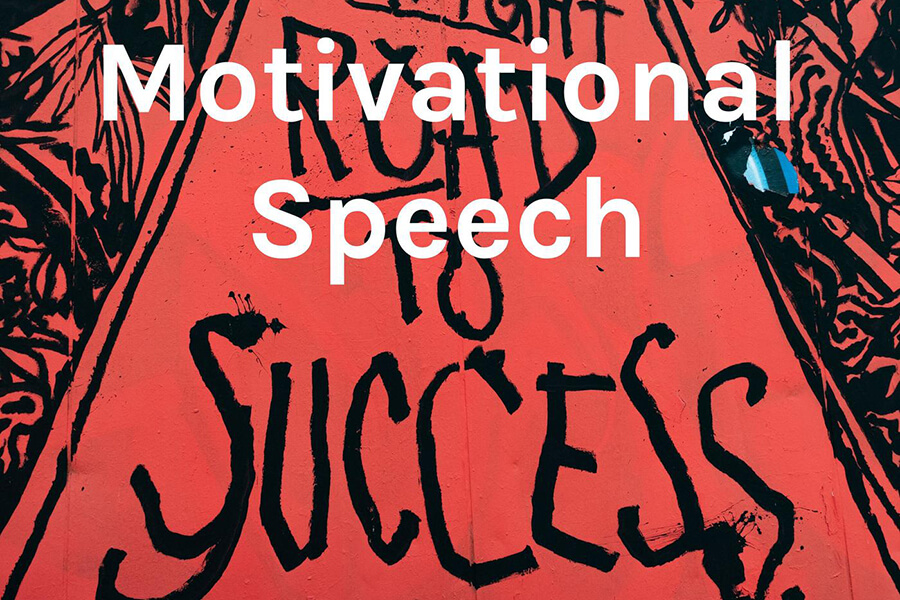Chess News, Events & Blogs
Motivational Speeches And The World’s Chess Player
Speeches that inspire chess players play a vital role in shaping their mindset, motivation, and approach to the game. These speeches highlight important aspects of chess, such as continuous improvement, patience, precision, and embracing challenges. They encourage chess players to approach the game with passion, determination, and a growth mindset, reminding them that chess is not just a game but a journey of self-discovery and intellectual growth.
Here are some famous chess speeches:
- Garry Kasparov’s “Checkmate Is Only the Beginning” Speech
“In chess, checkmate is not the end; it is only the beginning. It is the culmination of a series of calculated moves, sacrifices, and strategic thinking. But beyond that moment of victory lies the never-ending quest for improvement, for pushing the boundaries of our understanding of this ancient game. Embrace the challenges, relish the defeats, and learn from every move. Remember, in chess and in life, the pursuit of excellence is a journey without a final destination.”
- Anatoly Karpov’s “Patience and Precision” Speech
“Chess is a game of patience and precision. It teaches us the value of foresight, of thinking ahead and planning our every move. In this fast-paced world, chess reminds us to slow down, to consider our options, and to make calculated decisions. Remember, the most profound victories often come from the quietest moves, the ones that seem insignificant at first but lay the groundwork for a brilliant strategy. Be patient, be precise, and let your moves speak volumes.”
- Magnus Carlsen’s “Embrace the Unknown” Speech
“Chess is a battleground of uncertainty, a realm where even the strongest minds face the unknown. It teaches us to embrace ambiguity, to adapt and react to ever-changing circumstances. Remember, the beauty of chess lies not in predicting every outcome, but in navigating the uncharted territories, the positions we’ve never encountered before. Embrace the unknown, trust your instincts, and let your creativity guide you to victory.”
- Sir William Jones (1746-1794), British philologist and studier of ancient India, and discoverer of the Indo-European language family
“When I reflect on our constitution, I seem as it were to contemplate a game of chess, a recreation in which we both delight. For we have a king whose dignity we strenuously defend, but whose power is very limited; the knights, and bishops, and other pieces, have some kind of resemblance to the order of nobility, who are employed in war, and in the management of public affairs; but the principal strength is in the pawns or people; if they are firmly united they are sure of victory, but if divided and separated, the battle is lost. The motions of all, as in the game of chess, are regulated by fixed laws.”
- Jonathan Levitt, British grandmaster
“Apart from logical thinking and planning ahead, children also learn from the feedback they get in playing chess. They can see their own thinking process in action and can start to feel responsible for their own decisions.”
- Godfrey Harold Hardy (1877-1947), British mathematician, famous for his achievements in number theory
“A chess problem is an exercise in pure mathematics.”
- Michael Gelb, Motivational speaker and author
“Arabian writings of the 10th century AD not only praised the beauty of chess, the authors of the period also recommended chess as an educational aid in the development of logical thinking. They also held the opinion that chess could lead to an insight into things to come, could enhance friendships, and also protect against loneliness. The Arabs became enthusiastic players and all classes of society were enchanted by the game.”
- Norbert Wiener (1894 – 1964), Mathematician famous for work in the area of communication theory
“The advantage is that mathematics is a field in which one’s blunders tend to show very clearly and can be corrected or erased with a stroke of the pencil. It is a field which has often been compared with chess, but differs from the latter in that it is only one’s best moments that count and not one’s worst. A single inattention may lose a chess game, whereas a single successful approach to a problem, among many which have been relegated to the wastebasket, will make a mathematician’s reputation.”
- Peter Weiss (1916-1982), German dramatist and writer
“Nature supplies the game of chess with its implements; science with its system; art with its aesthetic arrangement of its problems; and God endows it with its blessed power of making people happy.”
- Albert Einstein (1879-1955), Father of Nuclear Physics, 1921 Nobel Prize winner
“Chess holds its master in its own bonds, shaking the mind and brain so that the inner freedom of the very strongest must suffer.”

